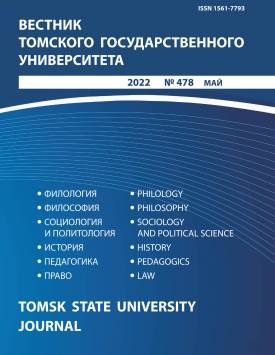Conditionality of Anglo-Saxon and Romance-Germanic types of criminal procedure
The aim of the article is to establish the factors that led to the emergence of the Anglo-Saxon and Romance-Germanic types of criminal procedure. In accordance with the aim, first of all, the conceptual apparatus is determined, in particular, such categories as “model”, “type”, and “form” of the criminal procedure. The author notes that these categories are based on the original conditions of life, which determined in their totality the mentality of the population living there and formed separate nations from it. In this connection, the reasons for the emergence in Europe of two fundamentally different forms of criminal proceedings - adversarial and mixed - should be sought in the mental characteristics of the society of England and the European continent. The author substantiates that geographic and religious factors are backbone for the mentality. Thus, the separation of England from the mainland predetermined its special historical path, associated with the limited influence of the Roman Empire, which allowed the British to preserve their historical identity. Europe, by virtue of its geographical position, has undergone widespread Romanization. This in turn led to religious differences. On the basis of the comparative legal and historical-legal analysis, it is noted that the role of law in European society was subordinate to the authorities, while in England the state acted on the legal field as only one of its subjects, along with private individuals. As a result of the study, the author came to the conclusion that it was the geographical and religious features that led to the different relations between the state and the individual in England and continental Europe, which eventually resulted in the formation of two legal systems with different types of criminal proceedings. This is confirmed by the evolutionary development of unified European criminal proceedings, when after the 17th century, under the influence of geographical and religious factors, the relationship between the state and the individual vertical to the authorities finally prevailed in continental countries, which eventually led to the widespread distribution of a mixed criminal procedure with pre-trial search proceedings. At the same time, in England, on the contrary, horizontal relations were firmly rooted, which excluded the dominance of the public over the private in public life and thus fixed adversarial criminal proceedings.
Keywords
type of criminal procedure, form of criminal procedure, model of criminal procedure, adversariality, search, mixed criminal proceedingsAuthors
| Name | Organization | |
| Azarenok Nikolay V. | Ural State Law University | azarenok_96@mail.ru |
References

Conditionality of Anglo-Saxon and Romance-Germanic types of criminal procedure | Vestnik Tomskogo gosudarstvennogo universiteta – Tomsk State University Journal. 2022. № 478. DOI: 10.17223/15617793/478/25
